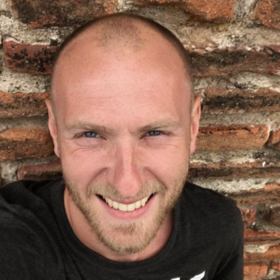For many students, moving from MYP to DP marks a major academic transition. The Middle Years Programme (MYP) promotes expansive, inquiry-driven education. But the Diploma Programme (DP) can be your next level.
Don’t be scared, though; this change isn’t that bad. After MYP, the DP actually ends up being one of the best parts of most students’ academic careers once they figure out what’s different.
Let’s talk about coming to DP from MYP and how you can benefit from it.
What Is the Difference Between MYP and DP?
The MYP is for learners between the ages of 11 and 16. It was built around an inquiry-based method to help students improve their interest, imagination, and critical thinking. In the MYP, you study a mix of eight subjects: from languages and sciences to arts, design, and physical education. This way, you get a little bit of everything and build a foundation.
Wow, and that’s an exciting part. In their final year, MYP students also undertake the Personal Project. It’s a self-directed study project on a subject they’re interested in, and it helps them improve their planning, thinking, and speaking skills. As an IB tutor, I must notice that all these are very helpful when moving from MYP to DP.
Next, the main part. Perhaps you already know this, but the Diploma Programme, which is for students between the ages of 16 and 19, is the next step. It’s more organized and difficult academically, with a focus on depth over breadth.
You will choose six subjects for the DP, with three at Higher Level (HL) and three at Standard Level (SL). You also have to finish three core elements:
- Theory of Knowledge,
- Extended Essay,
- Creativity, Activity, and Service.
All of these things push you to think for yourself, use your time wisely, and find a balance between your personal and academic life.
We’ll take a brief look at the differences between DP and MYP:
| Middle Years Programme | Diploma Programme | |
|---|---|---|
| Age Range | 11–16 years old | 16–19 years old |
| Focus | Broad learning and curiosity | Academic depth and specialization |
| Learning Style | Inquiry-based, hands-on | Analytical and research-driven |
| Assessments | Internal projects and criterion grading | Internal and external exams, IAs, EE, TOK |
| Core Elements | Personal Project, Service as Action | TOK, Extended Essay, CAS |
| Goal | Build global awareness and learning habits | Prepare for university and future careers |
See what the real difference is? The MYP helps you build the mindset of a thinker, and the DP trains you to use that mindset like a professional.
Does MYP Prepare You for DP?
The MYP does, in fact, set you up for success on the DP. It prepares you mentally and physically for the next level of academic and personal difficulty. You can develop critical thinking skills, effective time management, and a genuine enthusiasm for learning. Once you enter the IB Diploma Programme, these habits will make all the difference.
While we’re at it, many of the skills that DP students use daily are already practiced during the MYP. You gain the confidence to manage independent work in the future by learning how to organize, investigate, and evaluate your progress.
For instance, the Personal Project teaches you how to oversee a large project from beginning to end, which is a valuable skill when you start working on your Extended Essay or Internal Assessments.
In summary, here are the ways the MYP prepares you for the DP:
- Research and inquiry skills – You learn how to find, evaluate, and use information.
- Organization – MYP tasks train you to plan and balance different deadlines.
- Communication – You become more confident in presenting your ideas in both written and spoken form.
- Self-management – Reflection journals help you track your progress and make adjustments as needed.
- Adaptability – You get used to different learning styles and expectations.
You know, coming from MYP to DP is easy because you’ve already established a solid foundation. The MYP does prepare you academically, for sure. It also helps you learn how to learn on your own timeline, think critically, and stay focused during the harder years ahead.
What to Expect When Moving from MYP to DP?
When you move on to the Diploma Programme from the Middle Years Programme, you can expect a big change in how you learn and measure your progress. There are more rules, academics, and independence in the DP. But you’ll be fine if you formed good habits in MYP.
More Independence in Learning
Teachers often walk you through tasks and discussions in the MYP. In the DP, they still back you up, but they expect you to be in charge. You’ll have control of most of your own study, time management, and meeting deadlines.
This is the first step in learning how to study like a college student.
A New Type of Assessment
Assessments become more formal and exam-oriented. You’ll have Internal Assessments, essays, and external exams marked by IB examiners.
So, instead of smaller tasks across the year, your final marks depend on a combination of coursework and big end-of-program tests.
Buy IB IA with Full Confidentiality!
Grab your IB IA with full privacy guaranteed.
Our no-leak policy keeps your details 100% secure.

Specialization and Subject Choices
As we said above, you’ll choose six subjects from different groups:
- Studies in Language and Literature – usually your best or native language; focuses on analysis, writing, and understanding texts.
- Language Acquisition – a second language, such as French, Spanish, or Mandarin, that develops your communication and cultural skills.
- Individuals and Societies – subjects like History, Geography, Economics, Psychology, Global Politics, or Business Management.
- Sciences – includes Biology, Chemistry, Physics, Computer Science, and Environmental Systems and Societies.
- Mathematics – either Analysis and Approaches (AA) or Applications and Interpretation (AI), each offered at HL or SL.
- The Arts – options like Visual Arts, Music, Film, Theatre, or Dance. Students can also replace this group with another subject from groups 1–5 if they prefer.
This means that there is less variety than in MYP, but each subject goes into more detail. Also, don’t forget that the decisions you make should fit with your plans to study or work in the future.
It seems like a lot, but the DP has three core elements that we talked about in the first part, along with your subjects.
It takes practice to balance these things with your subjects, but it makes your academic experience much more valuable.
More Writing and Critical Thinking
In the DP, you’ll spend more time writing essays, reports, and analyses. Teachers expect clear arguments supported by evidence, not just summaries of information.
You’ll also be asked to evaluate different perspectives and explain your reasoning. It may feel demanding at first, but these skills become second nature with practice.
Related Articles:
- Tips for Choosing the Right Topic for Your IB Internal Assessment
- How to Write a Good IB Internal Assessment?
- What Is an Internal Assessment in the IB Curriculum?
- How to Write a Film Internal Assessment
- Internal Assessment Mistakes
- The Relationship Between the IB Learner Profile and Emotional Intelligence
- World of IB Acronyms: From EE to TOK
How to Make Your Transition to DP from MYP Easier?
I would like to tell you that the transition to the Diploma Program isn’t rocket science. After completing MYP, your research and problem-solving skills are solid. So, the next step is to apply them consistently and systematically. Think of the change as a chance to learn and develop, rather than something to be afraid of.
First, learn how to handle your own time well. Since you have to do more work on your own for the DP, making a plan will help you stay on track:
- Set aside time to study regularly, even before you have a lot of assessments coming up.
- Reviewing smaller sections more often is preferable to trying to cram everything at once.
- To keep track of your tasks, goals, and deadline dates, try using an organizer or an app.
Next, learn how to communicate with your teachers and peers. One of the best methods for understanding hard issues in the DP is to ask questions and discuss your opinions. At this point, study groups may also help you learn more easily.
It also helps keep everything in balance. The DP may be quite stressful, so don’t forget to take pauses, do things you like, and work out. Students who get enough sleep do better, think more clearly, and remain motivated longer.
Lastly, have an open mind when you walk into the DP. Some of the subjects will be familiar from MYP, while others may provide new challenges. That’s normal. If you are curious and disciplined in your lessons, you will get used to them soon.
Remember that coming from MYP to DP is not about being flawless from day one, but rather about making progress and being consistent.
How Our IB Writers Can Help You Transition from MYP to DP?
It can make a big difference to have professional help if you’re starting the Diploma Programme after the Middle Years Programme. Our skilled IB writers at Buy Internal Assessment know what it’s like to go through this change. They’ve helped hundreds of students make the transition to the more difficult DP setting and do well in it.
It can be hard at first to switch from creative, inquiry-based learning to structured academic writing and study. But with us, things will be much better, because we provide
- High-quality writing samples that show how high-graded Internal Assessments and IB essays are structured.
- Professional editing and feedback to improve the structure and clarity of your essays or Internal Assessments.
- Examples and guidance for TOK, EE, and other core elements to help you develop the right academic tone and format.
When you learn from experts who really get IB standards, you’ll definitely feel more ready for the challenges that come your way.

Nick Radlinsky
Nick Radlinsky is a passionate educator, marketer, and management expert with over 15 years of experience in the education sector. After graduating from business school in 2016, Nick embarked on a journey to earn his PhD, fueled by his dedication to making education better for students everywhere. His extensive experience, beginning in 2008, has made him a trusted authority in the field.
Nick's groundbreaking article, published in Routledge's "Entrepreneurship in Central and Eastern Europe: Development through Internationalization," showcases his keen insights and commitment to improving the educational landscape. Guided by his motto, "Make education better," Nick's mission is to simplify students' lives and promote efficiency in learning. His innovative ideas and leadership have helped transform countless educational experiences, setting him apart as a true pioneer in his field.




